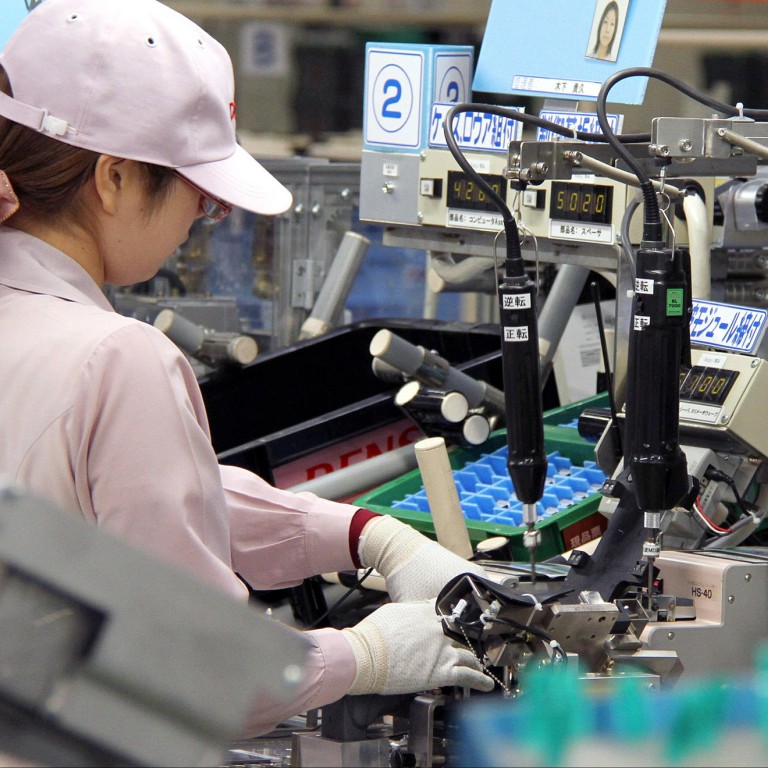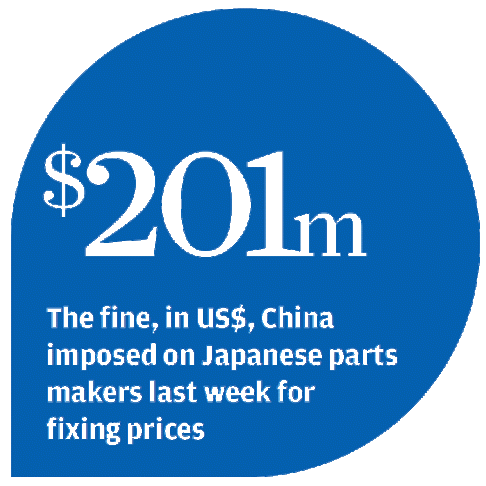
Car-parts suppliers face clampdown over price fixing
Worldwide probe into price fixing is expected to force component suppliers to adopt a lean operation to achieve low cost and high quality
When a Japanese carmaker issued a tender for shock absorbers a few years ago for a model it planned to sell in Indonesia, two suppliers came back with bids that were "so obviously co-ordinated", an executive at the carmaker said.

The intent was clear, recalled the carmaker's former parts procurement chief for Indonesia: they were dividing the contracts between them.
A few weeks later, he came across the two rival suppliers' chiefs playing golf together in Jakarta and summoned them to his office for an explanation. The upshot: the carmaker asked the parts suppliers to rebid.
The account helps illustrate how some car parts makers, in particular those from Japan, have colluded for years to inflate prices for carmakers, dealers and repair shops in a global market with annual sales of more than 80 million vehicles, which is now being exposed in a worldwide sweep by regulators.
For the past five years, competition watchdogs - from the United States, Europe, China and elsewhere in Asia - have moved in, handing out record fines in some cases and calling time on a business model that has served parts makers well.
China fined a dozen Japanese parts makers a record US$201 million last week for manipulating prices, while in the US, 28 firms and more than two dozen executives have in recent years agreed to pay US$2.4 billion in fines, according to the Justice Department.
The business model that the regulators are confronting essentially sees parts makers collude to keep prices relatively high for new components they supply to carmakers, and then charge even more for the same parts supplied as replacements to dealerships and repair shops.
Denso Corp, Japan's leading car electronics parts supplier, had a higher operating profit margin of 9.2 per cent than Toyota Motor Corp in the year to March, while Aisin Seiki's 6.1 per cent margin topped Nissan Motor's 5.3 per cent.
In South Korea, Hyundai Mobis, a leading Hyundai Motor supplier, had a margin of about 6 per cent on parts and component systems sales to carmakers last year, but 21 per cent on replacement parts sales, according to its filing with the stock exchange.
Some Japanese parts suppliers have evidently taken that business model further.
"To secure high profitability, those suppliers often co-ordinate bids for a supply contract when they can and come to carmakers with mostly identical bids," the car executive said.
As well as colluding to push up prices for new car parts, they also charge multiple times, sometimes as much as 10 times, the price when they make the exact same components available as replacement parts in the aftermarket marketplace.
"They're doubling dipping to beef up and maximise their profit margins," the executive said. "This is the kind of cartel you deal with in Southeast Asia with Japanese suppliers, and that's not the exception, but the typical business condition we deal with routinely around the world."
As regulators went after suppliers in what had become a worldwide probe into price fixing, this "business model is in danger", the executive said. "We might be seeing the beginning of an end of it."
For parts suppliers now, the answer may be to go back to business basics, industry officials and experts say.
"Rather than change in their business model, parts makers are going to have to quit getting their hands dirty for profiteering and should go back to basics," said Hidehiro Utsumi, an attorney-at-law at law firm TMI Associates.
That means re-embracing what Japanese carmakers are best known for - eliminating excess from the manufacturing process throughout the supply chain and trimming any fat from production to achieve low cost and high quality.
No one at Aisin or the Japan Auto Parts Industries Association was available to comment. A Denso spokesman referred to its earlier press statements on fines in various markets.
The crackdown on parts makers began about early 2010, when regulators in the US, Europe and Japan started looking into parts suppliers including wire harness makers such as Yazaki Corp and Sumitomo Electric.
Japan's Fair Trade Commission has fined 12 domestic parts makers a total of US$332 million since January 2012 for violating anti-monopoly laws, including Yazaki, headlamp maker Koito Manufacturing and bearing maker NSK.
In the weeks before China's penalties against the Japanese firms, the European Commission fined several parts makers, including Yazaki and NTN Corp, a total of US$182 million.
The crackdown, with action also taken in South Korea and Singapore, has hit Japanese parts suppliers the hardest as they operate globally. Car parts implicated in the probes range from wire harnesses to ignition coils.

